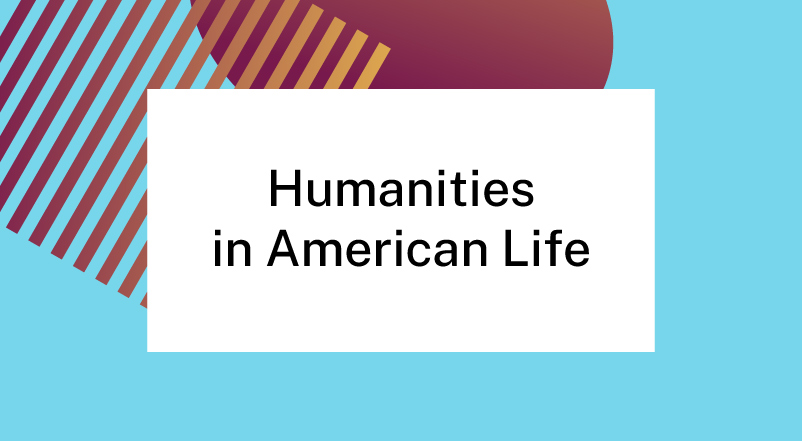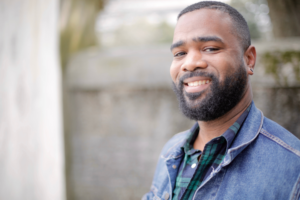Making Connections: Washington State Folklorist on Race and Bridging the Academic and Public Sectors
Dr. Langston Collin Wilkins’ article, “Black Folk, White Gaze: Folklore and Black Male Precarity,” published in the Journal of Folklore Research last November, began as a conference paper at the American Folklore Society Annual Meeting in 2019. In 2020, Wilkins published a shorter version of it before developing it into a large-scale journal article–something he did at night or on the weekends with a strong push at the end to get it done.
This may sound like a traditional evolution to publish academic work, but Wilkins is writing at a unique but increasingly urgent intersection of public and academic sectors. Wilkins holds a Ph.D. in folklore and ethnomusicology, he is the Director of the Center for Washington Cultural Traditions (a program of Humanities Washington and the Washington State Arts Commission), and he serves as Washington State’s state folklorist.
“I was trying to bring these two worlds together and kind of create a pathway for everyone to engage with this work,” Wilkins said. “Academia can be very insular and inaccessible and off-putting to many people, and so, I do, in my work, make sure I just create space and try to meet people where they are. Sure, I’ll cite Judith Butler, but I’ll also cite popular journalists, and I’ll cite comedians. I don’t think these ideas are owned by the academy, these are issues that we’re dealing with every day…and I think everyone’s voice is worth highlighting in that way.”
The article explores the connection between race and economic oppression in the US as it specifically affects African American men. It opens with lyrics from Big Floyd, a rapper from Houston who the world would later best know as George Floyd, and continues in conversation with academic thinkers–Butler, Franz Fanon–as well as public ones, like New York Times columnist Jamelle Bouie. Wilkins closes his argument with his own personal stake in the topic both as a folklorist and as a Black man: “A multiangled set of oppressions targets our Black male bodies and culture, and folklorists must employ much patience, deep care, and critical concern as they engage with them,” he concludes. Academic research, personal experience, and public solicitude all come to bear.
“It’s such a big issue that’s been around forever that we haven’t figured out how to solve in any real way, right? But what we can do is to continue to interrogate and raise awareness and hopefully better condition people to understand the various levels of subjugation within this country,” Wilkins said. “I just hope that continued awareness, that continued critical interrogation will help bring us out of this struggle. All we can do is play our small parts in this, and that’s what my writing and public work tries to do.”
Often that work comes to rest on two sides of the same coin, and Wilkins understands both sides as necessary to affect communities in positive ways. As a folklorist, Wilkins describes his work as partnering and connecting with communities to provide platforms and opportunities for them to tell their own story. He sees himself as a medium to accomplish this, a bridge from one world of conversation to the other, grappling with issues that are deeply personal but are widespread and turning it into something meaningful. Right now, he’s particularly focused on advocating for programming with incarcerated communities.
“For one, I think we need to really, deeply better understand the precarious nature of not just Black lives but all subjugated peoples, all racial and ethnic minorities, all gender and sexual minorities, in this country–that’s my main call,” Wilkins said. “But two, I think it’s really important to make overt and really direct connections and build relationships with these communities…If we’re about equity, then we have to be aggressive and active with it, and to be in true partnership with these communities.”



